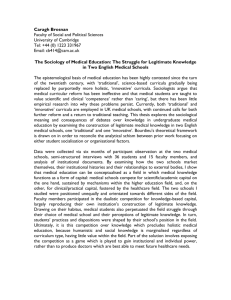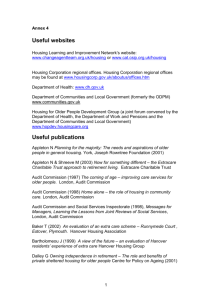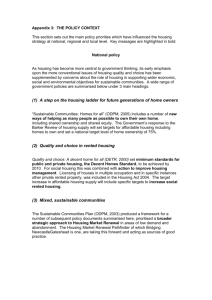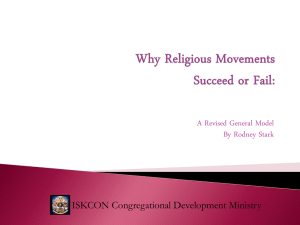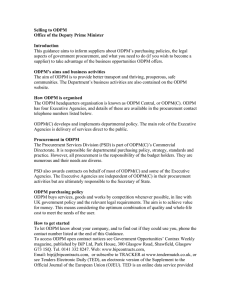vacation of office for failure to attend meetings
advertisement
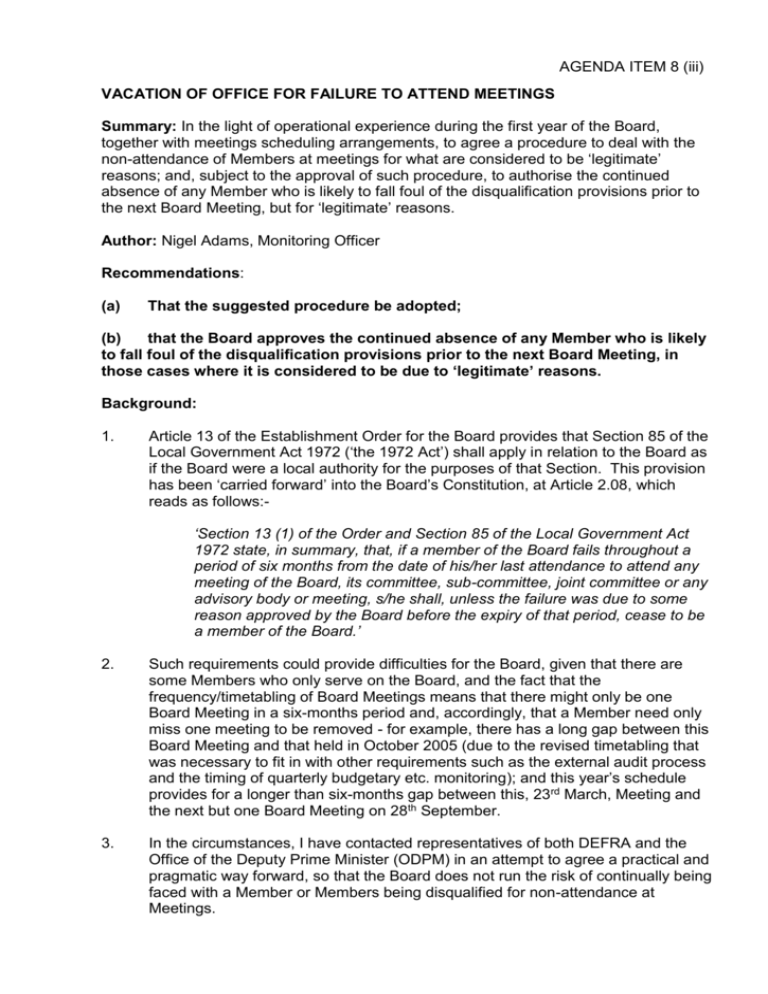
AGENDA ITEM 8 (iii) VACATION OF OFFICE FOR FAILURE TO ATTEND MEETINGS Summary: In the light of operational experience during the first year of the Board, together with meetings scheduling arrangements, to agree a procedure to deal with the non-attendance of Members at meetings for what are considered to be ‘legitimate’ reasons; and, subject to the approval of such procedure, to authorise the continued absence of any Member who is likely to fall foul of the disqualification provisions prior to the next Board Meeting, but for ‘legitimate’ reasons. Author: Nigel Adams, Monitoring Officer Recommendations: (a) That the suggested procedure be adopted; (b) that the Board approves the continued absence of any Member who is likely to fall foul of the disqualification provisions prior to the next Board Meeting, in those cases where it is considered to be due to ‘legitimate’ reasons. Background: 1. Article 13 of the Establishment Order for the Board provides that Section 85 of the Local Government Act 1972 (‘the 1972 Act’) shall apply in relation to the Board as if the Board were a local authority for the purposes of that Section. This provision has been ‘carried forward’ into the Board’s Constitution, at Article 2.08, which reads as follows:‘Section 13 (1) of the Order and Section 85 of the Local Government Act 1972 state, in summary, that, if a member of the Board fails throughout a period of six months from the date of his/her last attendance to attend any meeting of the Board, its committee, sub-committee, joint committee or any advisory body or meeting, s/he shall, unless the failure was due to some reason approved by the Board before the expiry of that period, cease to be a member of the Board.’ 2. Such requirements could provide difficulties for the Board, given that there are some Members who only serve on the Board, and the fact that the frequency/timetabling of Board Meetings means that there might only be one Board Meeting in a six-months period and, accordingly, that a Member need only miss one meeting to be removed - for example, there has a long gap between this Board Meeting and that held in October 2005 (due to the revised timetabling that was necessary to fit in with other requirements such as the external audit process and the timing of quarterly budgetary etc. monitoring); and this year’s schedule provides for a longer than six-months gap between this, 23rd March, Meeting and the next but one Board Meeting on 28th September. 3. In the circumstances, I have contacted representatives of both DEFRA and the Office of the Deputy Prime Minister (ODPM) in an attempt to agree a practical and pragmatic way forward, so that the Board does not run the risk of continually being faced with a Member or Members being disqualified for non-attendance at Meetings. 4. The DEFRA and ODPM representatives agree that, given the operational arrangements relating to the Board, the application of Section 85 of the 1972 Act was, in hindsight, perhaps inappropriate. However, it is clear that there is no prospect of any change to the Establishment Order in the medium term to rectify this issue, as this would require an amendment to the Order itself that, in turn, would require approval by both Houses (Parliament and Lords). Therefore, we must ‘live with’ and manage the situation. 5. The potential solution revolves around the ability of the Board to approve the continued absence of a Member or Members for more than six months, although such approval needs to be in advance of the expiry of any relevant six-months period. It is therefore suggested (with the support of the representatives of DEFRA and the ODPM) that a standing item be included on the agenda for each Board Meeting, which will enable the Board to authorise the continued absence of any Member who is likely to fall foul of the disqualification provisions prior to the ensuing Board Meeting, but for what are considered to be ‘legitimate’ reasons. 6. Such an approach is considered legally justifiable. However, it does rely on the good will and common sense of Members, both in considering the approval of continued absence and also in seeking such approval, as it could be open to abuse given that, legally, no reason need be given for any approval. That said, I feel that it is vital for any Board Member to be committed to the Board and its work, including attending all relevant meetings other than in exceptional circumstances. I would therefore suggest that if a Member is unable to attend a meeting at any time, then apologies should be presented and the reason for absence should also be given. This will then enable the Board to consider whether the absence is justified - there is clearly a difference between absence due to illness, and absence for a holiday or for no particular/given reason. Such an approach will also enable the Board to apply a ‘consistency’ to its decisionmaking in this area. (END)
